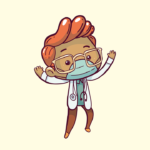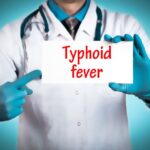Definition of fever

It is also referred to as pyrexia. Fever is a symptom, no longer a disease. It is the body’s ordinary basic response to infections. A fever is a higher-than-ordinary internal heat level, one of the body’s normal reactions to contamination. A normal temperature can vary from person to person, but it is usually around 98.6.
The increase in set point triggers increased muscle contractions and causes a feeling of cold or chills.
A fever can be brought about by numerous ailments going from non-serious to hazardous. This incorporates viral, bacterial, and parasitic contaminations – like flu, the normal cold, meningitis, urinary parcel diseases, a ruptured appendix, Lassa, Coronavirus, and intestinal sickness.
Symptoms of fever
There are several symptoms of fever among them some most common symptoms of fever that are :
- Feeling weak or lightheaded
- Loss of appetite
- Headache
- Muscle aches
- Sweating
- Chills
- Nausea
- Vomiting
- Rash
- Ear pain, Ear drainage, Hearing loss
- Visual and Eye Symptoms
- Sore Throat
- Chest and Pulmonary Symptoms
- Abdominal Symptoms
- Back pain, Joint or Skeletal pain
These are the most common symptoms of the fever.
- Metabolic rate increase 10-15%
- Insensible water loss increase
- 300-500ml/m2/day
- Oxygen intake ( O2 ) consumption increase 13%
- Heart rate increase 10-15/min
Precautions for fever
- Take your temperature and assess your symptoms. If your temperature runs 100.4°F (38°C) or higher, you have a fever.
- Stay in bed and rest.
- Keep hydrated. Drinking water, iced tea, or very diluted juice to replenish fluids lost through sweating. But if keeping liquids down is difficult, suck on ice chips.
- Take over-the-counter medications like acetaminophen and ibuprofen to reduce fever. Note the proper dosage, and don’t them use alongside other fever-reducing medications. You shouldn’t give aspirin to your baby or child without consulting your doctor. Infants under 6 months of age shouldn’t be given ibuprofen.
- Stay cool. Remove extra layers of clothing and blankets, unless you have the chills.
- Take tepid baths or using cold compresses to make you more comfortable. Cold baths, ice cube baths, or alcohol baths or rubs can be dangerous and should be avoided.
- But no matter what the number on the thermometer reads, if you have any concerns consult your doctor.
Diets for fever
Fluid-rich foods : Drink water, hot tea, fresh fruit juice. Intake of fluid-rich foods is recommended such as poultry broths, thin soups, coconut water.
Fresh fruits : Fruits like apples, oranges, watermelon, pineapple, kiwi are rich in vitamin C. This contains antioxidants that reduce fever.
Avoid fruits with heavy sugar and fruits canned in syrup because sugar inhibits the immune system. The banana provides vital nutrients and easy to digest.
Proper intake of proteins : Scrambled eggs, smoothie with low-fat milk, dal, chana or Indian cottage cheese are rich in protein and beneficial.
Diet food items consume during suffering with fever :
- Cereals : Properly cooked white rice, white bread
- Pulses : Thin dhal
- Vegetables : Properly cooked and mashed Potatoes, Carrots, Ashguard, Carrots
- Fruits : Banana(small),Oranges and Apple ( Without skin ), Tender Coconut water.
- Milk and Milk products : Yoghurt, Buttermilk.
- Meat, Fish and Egg : Boiled egg, stewed fish.
- Oil : 1 tbsp./day ( Olive oil, Mustard Oil, Rice bran Oil, Canola oil )
- Sugar : 2 tbsp./day.
Treatments for fever
Most fevers are associated with self-limited infections, most commonly of viral origin.
Reasons not to treat fever :
- The growth and virulence of some organisms
- Host defense-related response
- Fever is an indicator of disease
- Adverse effect of antipyretic drugs
- Iatrogenic stress
- Social benefits
Reasons to treat fever :
- The elderly individual with pulmonary or cardiovascular disease
- The patient at additional risk from the hypercatabolic state (Poor
- nutrition, Dehydration)
- The young child with a history of febrile convulsions
- Toxic encephalopathy or delirium
- Pregnant women (controversy)
- For the patient comfort
- Hyperpyrexia
Acetaminophen is generally a first-line antipyretic due to being well tolerated with minimal side effects.
Medicines for fever
- Paracetamol tablet ( 325mg, 500mg, 650mg )
- Acetaminophen
- Ibuprofen
- Aspirin
Note : Take medicines under the guidance of doctor.
Side effects
Allopathy medicine’s side effects in fever :
- Can be hepatotoxic in high doses, can upset stomach.
- Serious side effects of paracetamol :
- Allergic reactions, which may be severe and include,
- Skin rashes,
- itching or hives,
- Swelling of the throat,
- tongue or face.
Homeopathy medicine’s side effects in fever :
- No evidence found in homeopathy medicine
Book your free appointments for homeopathy medicine at your doorsteps.


